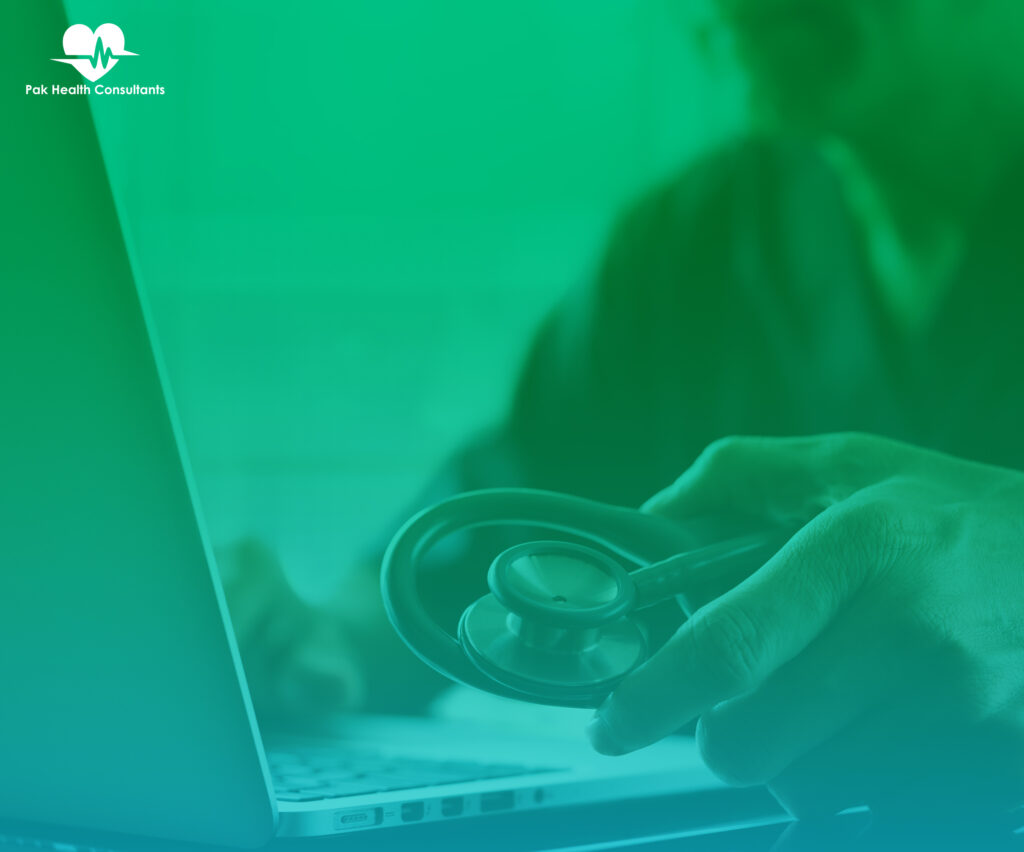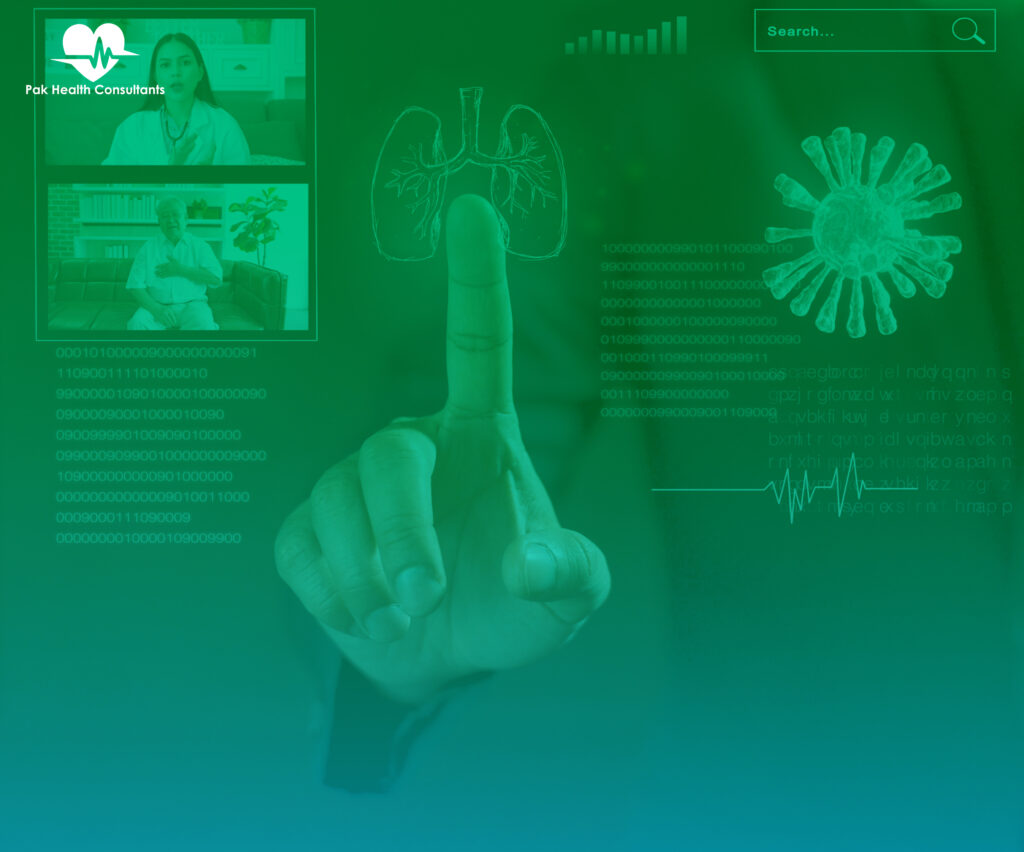The COVID-19 pandemic is affecting the economic, social and medical sector in every country. Most of the governments are announcing financial relief packages to support those individuals who have lost their loved ones or got unemployed due to the rigorous protocols of social distancing. Despite all the measures being taken, the world continues to battle against the emerging variants of the virus. Telehealth for coronavirus can play a significant role in fighting this battle.
The medical sector of Pakistan is also facing an acute shortage of doctors, paramedical staff and facilities. Everyone is being advised to strictly adhere to the instructions provided by the government. People are being encouraged to take precautions instead of becoming a victim of this disease. Doctors and the government are encouraging use of face masks, hand sanitizer and social distancing. Furthermore, smart lockdowns are imposed in different residential and commercial areas that turn out to be the hotspots for massive spread of the virus.
In the contemporary scenario, most of the doctors and paramedical staff prescribe citizens to avoid unnecessarily visiting the hospitals for their general checkups, as there is always a probability of getting infected and carrying the virus at their home. Resultantly, people have started to prefer taking doctor consultations online.
Telehealth has emerged as a new domain of delivering education regarding a healthy lifestyle, care and information services through remote technologies, so that an individual can easily consult a doctor from one’s home. Let us analyze the concept of telehealth for coronavirus and how it is being introduced in Pakistan to combat the spread of COVID-19.
What is Telehealth?
The term Telehealth refers to the provision of services related to health care which includes health information updates, self-care with the aid of information and communication technologies. Some of the conspicuous examples of digital health care include medical aid mobile application, Remote Patient Monitoring, live calls, and video conferencing sessions between doctors and patients.
Significance of Telehealth for Coronavirus

Telehealth is alternatively used with the concept of telemedicine that includes the diagnosis and treatment of a problem found among patients without their presence at a hospital. In other words, the patients are treated remotely with the use of telecommunication. In this process, a patient narrates his symptoms without any need of a physical checkup by a physician or a doctor. Telehealth and Telemedicine is considered significant in such circumstances where the patient can easily elaborate what one feels at the onset of an ailment. The doctors connected through the telecommunication technology, despite being geographically separated, identify the symptoms as narrated by the patient. Then, the doctor prescribes the most suitable medicines which can be bought from the nearest pharmacy.
In certain contexts where the disease cannot be identified immediately, a patient is generally instructed to get one’s reports of different tests to monitor sugar, cholesterol, and other reports. Despite these tests, when the doctors are not available to see these reports in person, telehealth provides an alternative to directly share these reports online with the doctor and get the right prescription based on the observed symptoms. In other words, it facilitates the patient in every possible way.
Telehealth cannot be limited to the principle of remotely diagnosing and treating patients without meeting in person. It is an all-inclusive term that involves digital education of general masses regarding healthcare, and provision of devices for self-monitoring.
The Role of Telehealth for CoronaVirus in Pakistan

Here are some of the significant features of this facility:
Saving Medical Records
There are various modes for provision of remote services through telehealth. Mobile Technology is the most common mode for making the patients aware regarding their own health conditions and COVID updates. Individuals are able to monitor their pulse rate, blood pressure, glucose level and physical activity through this medical record saved on their phones.
Any sudden variation in this data is taken as a serious sign of some medical disorder and resultantly, the individual timely connects with a health expert to seek advice.
Staying Alert About COVID-19: Telehealth for Coronavirus
With reference to controlling COVID-19 in Pakistan, the National Information Technology Board has developed COVID-19 Gov PK, a mobile application that provides 24 hour updates regarding the spread of the virus in different areas. Furthermore, an individual can utilize the application for self-evaluation alongside radius alert to know regarding the hotspot locations to avoid visiting those places.
The application comes with an integrated Chat Bot that assists in terms of any symptoms that a patient observes in one’s breathing, pain or temperature.
Knowing the Nearby Hospital Facilities
In addition, National Command and Operations Centre has integrated Pak Neghayban Feature into the application bringing onboard more than 1100 hospitals throughout the country to help individuals identify the nearest health centre to get the ventilator, testing facility and necessary hospitalization.
Talking with Doctors through Live Calls
Another mode being widely used in the country is live calls, one-to-one discussions and video conferencing sessions arranged with doctors and patients. Aga Khan Health Services alongside Aga Khan Digital Network Digital Health Resource Centre has launched Elaj Asan mobile application that has simply bridged the gap between doctors and their patients.
The application facilitates the patients observing the likely symptoms of the virus to schedule their virtual meeting with the doctor available at Aga Khan Health Centres in Karachi, Karimabad and Gilgit. The most feasible date and time for the both sides is finalized and the patient is able to share their medical records with the doctor or consultant to determine conditions based on the provided results.
The best part of the application is that neither the doctor nor the patient need travel to the hospital. The patient can utilize any of the provided modes of payment for submitting the checkup fee and the doctor can prescribe the most appropriate medicine for treating the ailment. These are some of the major examples of the revolution that telehealth for coronavirus has brought.



It’s very good, practical and realistic approach. In addition, people who want to operate or to get advise from foreign countries are also welcome and facilitate through pakhealthcare platform.
Also arrange patient treatment plan which
includes ( travelling, ticketing, hospitalization etc.) through healthCareConsultant platform.
Etc etc….